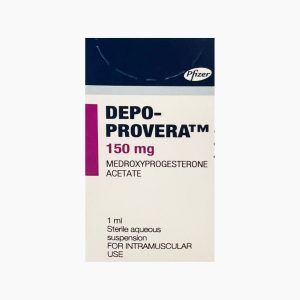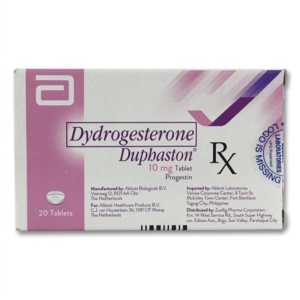Description
Danazol is a synthetic androgen that has been used primarily in the treatment of conditions like endometriosis, fibrocystic breast disease, and hereditary angioedema. The drug works by altering the levels of hormones in the body, which can lead to a range of systemic side effects.
Danazol is a preparation, which suppresses the production of gonadotropins (luteinizing hormones and follicle-stimulating hormones) of the hypophysis, therefore there is braking ovulation and atrophy of an endometrium. With the purpose of emergency contraception, it is recommended to accept Danazol twice in a dose of 600 mg with an interval in 12 h for 72 h after a not protected coitus.
It is considered, that there are not many by-effects at the application of Danazol with the purpose of emergency contraception. Moreover, Danazol may be applied by the patients with contra-indications to the application of estrogen-estrogenic preparations. However, there is no big number of messages about the application of this method available in the literature.
Pharmacological action
The preparation suppresses the discharge of gonadotrophic hormones (hormones of the hypophysis, stimulating formations of hormones in sexual glands): luteinizing (a yellow body causing the formation of the ovary) and follicle-stimulating (stimulating the maturing process of ovum). In greater doses, it renders moderated androgenic (similar action of male sexual hormones) and anabolic (strengthening synthesis of albumen) action.
Indications to application
In connection with antigonadotrophic (directed on the decrease in function sexual glands) action it is used as a treatment of endometriosis (occurrence in the various bodies of sites of a fabric similar by a structure with an internal environment of a uterus and exposed to cyclic changes accordingly to a menstrual cycle) with accompanying barrenness, benign tumors of a mammary gland (fibrocystic mastitis, etc.), a premenstrual syndrome (deterioration of the state of health before the beginning of menstruation), gynecomastia (increases of mammary glands at men) and other diseases at which suppression of secretion of gonadotropin (the hormones of a hypophysis stimulating activity of sexual glands) is shown.
Contra-indications
- From the reproductive system: hypersensitivity, genital bleedings (prior to identifying the cause), cancer of mammary glands, cancer of prostate gland.
- From the endocrine system: diabetes.
- From the renal system: acute renal insufficiency.
- From the hepatic system: acute hepatic insufficiency.
- From the cardiovascular system: severe cardiac insufficiency.
- From the nervous system: epilepsy, migraine.
- Other: porphyria, disorders of plasma hemostasis, and pregnancy.
Collateral actions
- From the reproductive system: Infringements of menstrual function, reduction of the sizes of mammary glands, roughing of the voice, vaginitis, infringement of spermatogenesis.
- From the metabolic/endocrine system: Increase in weight of the body, hypostases (swelling), increase of the level of transaminase, insignificant hirsutism (excessive hair growth).
- From the integumentary system (skin): Alopecia (hair loss), erythema of face, hyperhidrosis (excessive sweating), seborrhea, acne, skin allergic reactions.
- From the nervous system: Headaches, increase of intracranial pressure, lumbodynias (lower back pain), paresthesias (abnormal sensations), neurotic reactions, emotional lability, infringements of sleep, depression.
- From the visual system: Frustration of sight.
- From the hematologic system: Thrombocytosis or thrombocytopenia, erythrocytosis, leukocytosis, raised danger of bleeding in patients with hemophilia.
- From the hepatic system: Cholestasis, hepatitis, hepatoadenoma, increase of the level of transaminase.
- From the digestive system: Dyspeptic displays (rarely).
Safety measures
It is necessary to supervise periodically a level of transaminase and bilirubin in the serum of the blood. At the purpose of diabetics, the correction of a dose of insulin is necessary. During treatment, the feeding mothers are recommended to stop breastfeeding.



Reviews
There are no reviews yet.